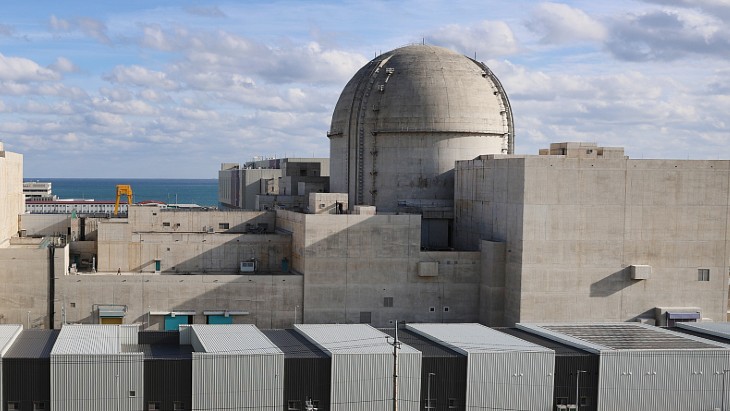The government announced its decision on 26 August to allow an expansion of the intermediate storage for used nuclear fuel while waiting for a final repository to be constructed and put into operation. The decision came despite industry warnings that separating the applications would create future disruptions to electricity supply due to a lack of interim used fuel storage capacity. Swedish nuclear power plant operators had called for a decision on both the expansion of Clab and the construction of a final repository to be made by 31 August. However, the government said: "A partial decision on the intermediate storage is necessary to secure the energy supply in the coming years."
"With this decision to increase the storage capacity, we are taking responsibility for Sweden's energy supply," said Minister of the Environment and Climate Per Bolund. "Without this decision, we would risk serious consequences for society if essential electricity generation were to halt abruptly."
The government said it is working as fast as possible to prepare the decision on the final repository itself. It said it expects the decision to be made "in a matter of months". However, it noted the permitting process that would follow a government decision "will take additional time".
"If there is no legally binding permit for extended interim storage before the end of 2023, Sweden's electricity production risks being negatively affected," the government said. "Therefore, it is necessary to make a partial decision on the intermediate storage."
Joint applications
Radioactive waste management company Svensk Kärnbränslehantering AB (SKB) submitted applications to build Sweden's first nuclear fuel repository and an encapsulation plant to the Radiation Safety Authority (SSM) in March 2011. The integrated facility - the encapsulation plant and the Clab interim storage facility at Oskarshamn - is referred to in SKB's application as Clink. The application concerns the disposal of 6000 capsules with a total of 12,000 tonnes of radioactive waste at a depth of about 500 metres. SKB also applied to extend the storage capacity of the Clab facility from the current 8000 tonnes of fuel to 11,000 tonnes.
The applications have been reviewed by the SSM and the Land and Environment Court. The SSM has considered issues of nuclear safety and radiation at the facilities as laid down in the country's Nuclear Activities Act. The review undertaken by the Land and Environment Court was based on the Environment Code. Both SSM and the Land and Environment Court submitted their respective positive opinions to the government on SKB's applications in January 2018.
Under the Swedish Environmental Code, before the government makes a final decision, it must consult with the municipalities of Oskarshamn and Östhammar, which have the power to veto the application. In June 2018, the municipal council in Oskarshamn voted in favour of SKB's plan to build the fuel encapsulation plant in the municipality. The municipal council of Östhammar in October 2020 approved the planned repository at Forsmark.
"The municipalities of Oskarshamn and Östhammar take great responsibility and have worked intensively with the issue of final disposal," Bolund said. "The government understands their attitude and I want to emphasise that a partial decision on the issue of increased interim storage does not mean that the preparation of other parts of the final repository issue ceases."
"Risk-taking" decision
Responding to the government's decision, SKB CEO Johan Dasht said the company was having a "hard time" understanding why the government has not made decisions about the entire final repository system. "This is a major risk-taking that does not save electricity production but risks it," he said. "This means increased risks that the intermediate repository will be full before we get all permits in place."
Dasht added: "It has never happened before that a government separated an application which will then be forwarded to the Land and Environmental Court. The intermediate storage does not stand on its own two feet but is part of a coherent system. There is now a great risk that the case will get stuck in the Land and Environmental Court, which is the next step in the process. The government is also driving over Oskarshamn municipality, which opposed extended interim storage without a final repository decision."
In a 5 May statement to the Nordpool power exchange, utility Vattenfall said it saw a risk that its power reactors would have to shut down depending on the timing and outcome of the expected government decision. At that time, it said Forsmark units 2 and 3 may not be able to restart following planned annual maintenance outages in 2024 and 2025, respectively, due to a lack of used fuel storage capacity. Likewise, it said Forsmark 1 may have to close down in 2028.
Vattenfall told Nordpool today that the government decision to separate the applications has created uncertainties in the legal procedure for obtaining final decisions on the storage of nuclear fuel. It said the possibility of restarting Forsmark 2 and 3 after the outages in 2024 and 2025 is now "not foreseeable at the moment".

.jpg)



_72306.jpg)


_49562.jpg)





